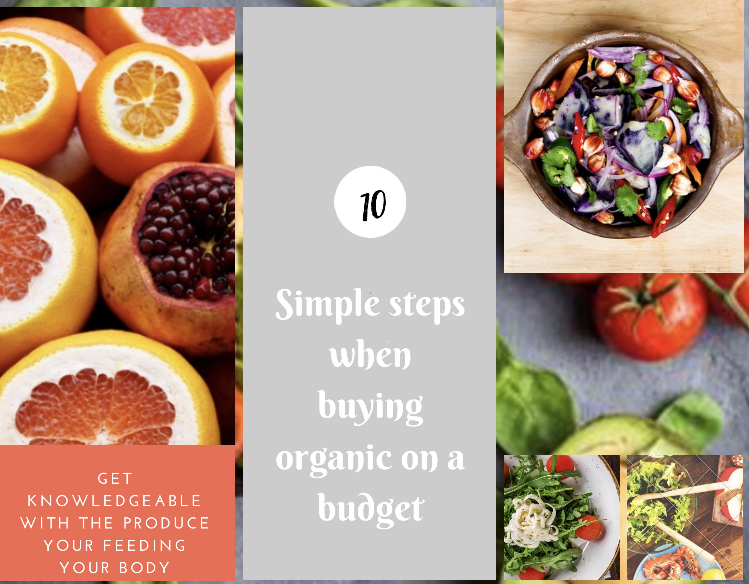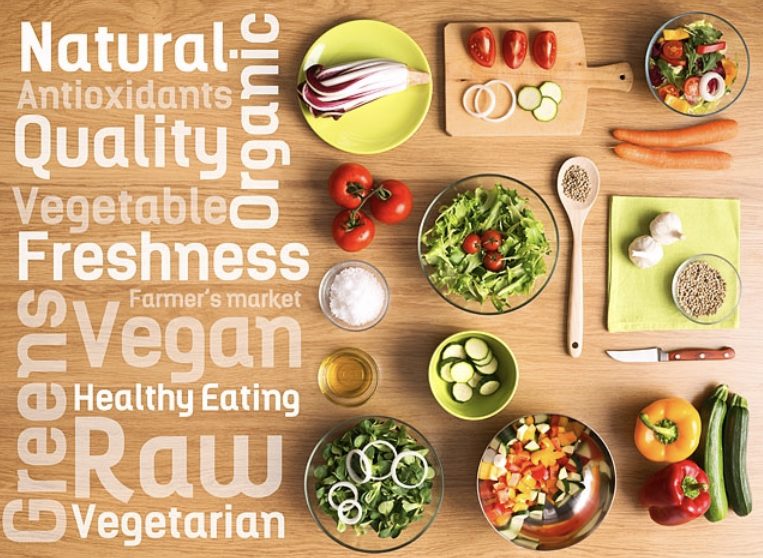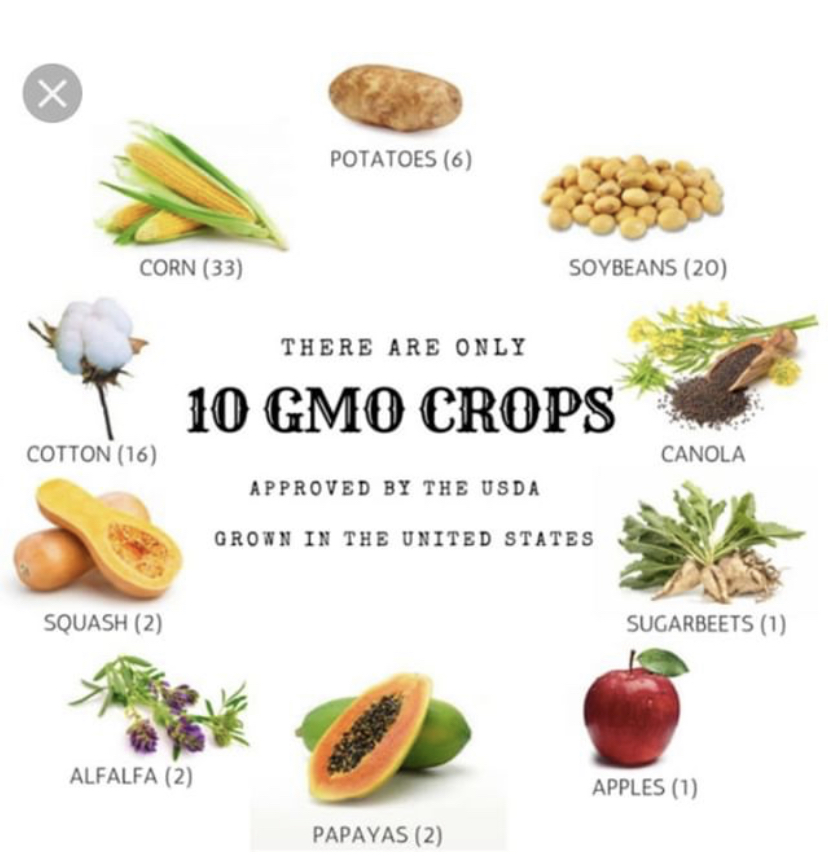
16 Apr 10 Tips to buying organic on a budget
As I promised here are some tips and tricks on how to buy Organic products at a more reasonable price.
Some reasons why people don’t buy organic is simply because they don’t know the knowledge of it.
They see the price and think, eh ill just skimp here and pay for the conventional cheaper produce. Getting 5 avocados for $1 vrs 2 organic for a $1.
Eating the most rich nutritional foods on the planet will leave you with an all around healthy life. Emotionally, physically, and mentally.
But here is the thing, non organic foods often contains, immunity destroying antibiotics and dangerous pesticides along with cancer growing hormones.
Pesticides are poison! They were made to kill. They can cause gut health problems, neurological problems, cancer, allergies, asthma, skin issues, ADHD, rashes, illness, and the list goes on. So when given the choice why would anyone want to buy foods that are sprayed and grown with pesticides.
I promise you, eating high quality, organic foods will save you money in the long run. When you no longer need to pay for doctors visits, prescriptions and medications.
Eating the most rich nutritional foods on the planet will leave you with an all around healthy life. Emotionally, physically, and mentally.
How to eat organic on a budget:
First off, when buying anything organic it is always best to check the “Dirty Dozen and Clean 15 list”
Some of you may be new to hearing about this, if so, here is the scoop.
The Environmental Working Group (EWG) is a non-profit, non partisan organization dedicated to protecting human health and the environment. They research what’s in our tap water, the safety of our cosmetics, genetically modified organisms (GMO/GE), and the amounts of pesticides in and on our food, among other things.
They give us a guide of the pesticides in produce aka The Dirty Dozen and Clean 15.
It is updated every year and ranks the pesticides contamination on 48 popular fruits and veggies.
This guide is based on results of more than 35,200 samples tested by the U.S. Department of Agriculture and the Food and Drug Administration.
The Clean 15 are the top foods with the least pesticides, while the 12 foods with the most pesticides are none as the dirty dozen.
When Shopping at any health food or traditional grocery stores, i use the Dirty Dozen and Clean 15 as my guide to choose what fruits and veggies i’ll buy organic.
Which goes into tip #1
If you can’t afford to buy all things organic, then go off The Dirty Dozen and Clean 15 and only buy organic on the 12 that are loaded with most pesticides.
If you wish to read and download the full EWG report and see which produce for 2019 are in the Dirty Dozen and Clean 15 list read here
Tip #2
Look for organic coupons.
A lot of health food stores such as whole foods, sprouts, and simply organic have apps and on their website offer coupons, or tell you the items that will be on sale for that week. Most stores take each others coupons, so don’t be afraid to use them all in one shopping trip at whichever store you’re at.
Tip #3
Buy seasonal.
It’s always cheaper to buy produce that is in season. You can even buy in bulk and freeze it for when those items go out of season and pricing goes up. For example, in the spring and summer a lot of the berries and refreshing veggies are on sale.
Tip #4
Buy in bulk.
learn to use your freezer. You can even double up on recipes and freeze the leftovers for later that next week. Freeze in mason jars, or silicone molds for smaller portions.
Also, Take advantage of the “buy one get one free.” deals.
Tip #5
Cook at home.
Create your meal plans around the most affordable produce, meats, and sale items. Plan out your meals for the week according to organic foods that are on sale, in season, or have coupons for. Doing it yourself rather than buying it is way more affordable too.
Making your own smoothies, granola, gondola bars, kale chips, banana chips, juices ect.
Tip #6
Buy online.
Have you heard of Thrive Market? This website is like a health food store stocked up with non-GMO and organic groceries at a reduced price. (up to 25-50 percent off)
They do have a small fee (just like a costco) but it comes to about 5$ a month. Which is so worth it to me. But they give you your first month free for new customers. With and additional 25 percent off.
I also love Amazon (i mean who doesn’t) they have all the up to date brands and free shipping (if you don’t already have prime) on 25 dollar orders and up.
Tip #7
Grow your own or by local.
Growing your own garden with veggies and fruits may take a little bit of work but in the long run save you a ton of mulla. Just remember to buy no GMO seeds. or you can by locally at your farmers market. It’s significantly cheaper than food shipped from miles away.
Tip #8
Don’t waste food!
Did you know americans waste around 1,400 calories of food PER PERSON every single day!!
Not wasting food, making it last longer and staying fresh would save a lot on food going bad and having to throw out.
Raw nuts and flours should be kept in the refrigerator to last longer without going rancid.
Line a paper towel on your kale, spinach and leafy greens to collect the excess moisture. Or when you see it’s about to go bad and you have to much to use.. freeze some. and you can add to smoothies or stir fry!
Repurpose vegetable pulp from juicing to add fiber to soups, smoothies or make bread.
When you buy bananas keep away from one another, they spoil slower
To keep bugs away from grains, pasta, flours put a bay leaf in the containers
Do not wash your greens or fruits before you consume. They will last longer when you wash as you eat.
If you have a garden in your yard, you can compost all food waste and put the nutrients back in your garden as fertilizer.
Tip #9
Comparison shop.
With so many health food stores around and even your local grocery stores. It’s always best to look up and see which products are on sale, or you have coupons for, and which store sells them cheapest. Example, produce is always cheaper at sprouts than trader joes.
Instead of buying all your items at one store out of convenience. You can shop around at 2 or 3 and save money on products.
And tip #10
When it comes to your meat and dairy products it is SO important, if not the most important to buy organic because of the combined risk of pesticides, antibiotic, and cancer causing growth hormone exposure.
So, in my opinion. I would not skimp here.
The more we buy organic produce, the more will be grown and the less it will cost. #supplyanddemand.
If you know someone who’s struggling to buy organic due to the cost, or wants to save some money when shopping please share this post with them. I would love to see more people buying organic foods and knowing how to do so with money not being an issue!



